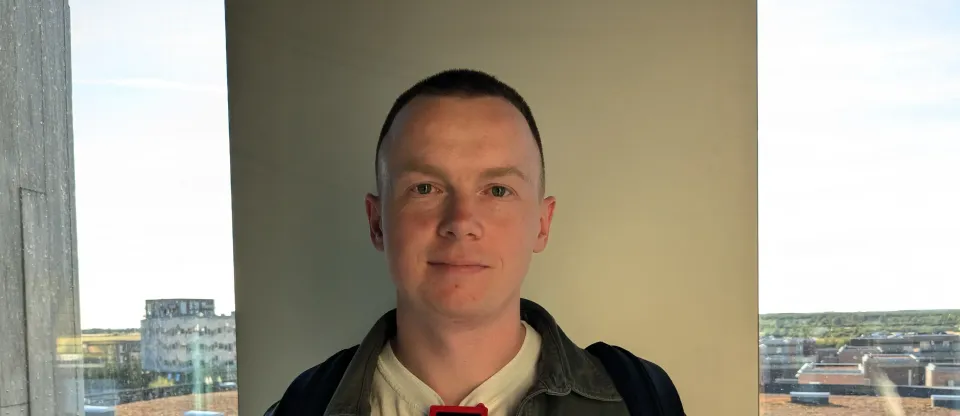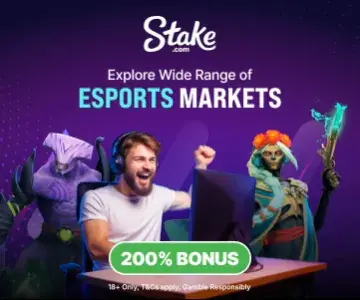- Noxville
Interviews
12:36, 17.09.2024

When The International is on, it’s not just the current generation of players who attend - there’s always a vast assortment of older players and legends of the game who fly in for the real festival of Dota. One of those in attendance this year was Peter "ppd" Dager, a five time International attendee and 2015 International Champion. He’s the former captain and later CEO of Evil Geniuses, but also played under the banner of Ninjas in Pyjamas and OpTiC Gaming, amongst others.
Hey there Peter, thanks for joining us today. You’ve mostly been out of the scene for the last four years or so (barring a few months playing, and a few months coaching Alliance) - could you give us your feeling of how the scene has progressed over that time?
Wow, big question. I stopped playing during COVID, that’s when I took a step back and felt it was time to do something else. Being a player is awesome and a great life but I’ve always been someone who’s wanted to achieve things and I didn’t really feel there was that much more to achieve in Dota 2. Coming out of esports at a different angle where I could provide opportunities to people was very interesting to me.
I've always been somebody who is trying to collaborate and better organise my peers to do things that were bigger than things that I could do just by myself; but I felt as a player that I was really running up against a wall with peers within Dota. So I thought that if I took a step back and came at it from a different angle, I might be able to have the impact that I was trying to have - unfortunately I was mistaken. I realised that after I walked away from a position of power as captain of Ninjas in Pyjamas, I lost leverage. People are caught up in their own lives and they aren’t necessarily interested in working on something that they don’t realise the immediate benefits from.

So where did you go next?
I started working at an esports production company, Esports Engine. It was run by a few of the old MLG guys from way back in the day, and they brought me on as a program manager which is like a product manager who has no control over the product. We would receive RFPs from publishers like Blizzard, Pokemon Company, Supercell, etc and run their esports programs for them - so a lot of white label production. I was a central point of contact who would ensure that cross-department collaboration was smooth and got things done. The main thing that I worked on was the Pokemon Unite program, because it’s a MOBA and they’re like “oh Peter … Dota … MOBA …?!”.
It was a little disappointing for me, it was very corporate and I’d never had a corporate job before – I was a Dota player for 10 years. I thought that if I worked at a production company I would possibly be able to come at Dota at a different angle where I’d have an army of event-capable people to do an esports program. Our company was only really interested in doing white label work and didn’t have the ability to monetize anything that wasn’t publisher backed. Eventually the company was sold to ESL who had like a billion dollars of Saudi money - and they took over the contracts and fired mostly everyone, myself included.
Around this time, nouns picked up a Dota 2 team and I started to look into what it was. At first I was like “oh great, another crypto scam” but I started to learn more about crypto through the lens of esports. I saw the opportunity to better organise decentralised groups such as gaming culture communities, and it inspired me to go down this path and see what we could do. We are essentially an esports organisation, and have a Dota 2 team which I don’t have too much direct involvement in - I’m one of the more senior members who gives input across multiple games and does a lot of the operations.

Would you say you were one of the key drivers behind Nouns Dota team getting funding from the Nouns DAO (decentralised autonomous organisation)?
I actually discovered nouns esports through the Dota team. That proposal was initially driven by a professional Starcraft 2 player who used to play in Dota leagues; along with another member who thought it’d be cool if they signed SumaiL and dominated NA Dota. That’s how they connected the two founders, but I came in early and acted as an advisor and lent a hand where I could. We passed a proposal last year to the DAO for 2 million USDC (a stablecoin pegged to the United States Dollar), and with that funding I came on as a full-time employee.
Earlier on in the interview you said that you felt it difficult to rally your peers in the Dota scene – just for some context for the readers, in 2016 you attempted to form a player union and act as a collective bargaining and representation group that could negotiate with tournament organizers, teams, etc. Do you think that could happen in the future or do you think we’ve gone too long without something like that?
I think that yes, it’s possible we’ll get well organised collective bargaining in the future in some esports - but maybe not within Dota. Dota could look very different if Saudi Arabia wasn’t coming in with such big investments into the space. That said, there’s not a lot of people investing in esports anymore which fueled the scene to such heights during the peak of my time. Under different financial conditions, I think people would be more collaborative and open-minded. As an esport, Dota is very tribal and it’s always been like that - most players and teams only associate within their tribes. A lot of the bigger players also started their own esports orgs and made things even more tribal.

It’s been a few years, but is there any real chance you might make a return to competitive Dota? When the DPC was on it seemed very plausible that someone like you could just join or form a team and start playing again. And if you do return would it be more casual like the Chinese “Big God”, or more serious?
I’ve been playing Dota recently, but I’m really far behind - like 9k MMR. With the crazy MMR inflation it’ll take like 100 games a month to make even small gains so I’m crazy far behind. That being said, in NA it’s actually possible since there’s not that many strong players anymore; and you need to be financially well-off or have someone you can rely on. I’ve done pretty well for myself so if I really wanted to go back to being a Dota player I think I could get back into it by starting a team and getting some nice twenty year olds to carry me around. For now, I’m going to be more behind the scenes and be an organiser. I would love to do more Dota stuff but it’s just really expensive - I could run a North American Dota tournament for five-figures and the best teams wouldn’t even show up; it’s very hard for operators to get into the space.
Thanks for joining us Peter, and be sure to follow on X (formerly Twitter).
Comments
Upcoming Top Matches
Latest top articles







No comments yet! Be the first one to react